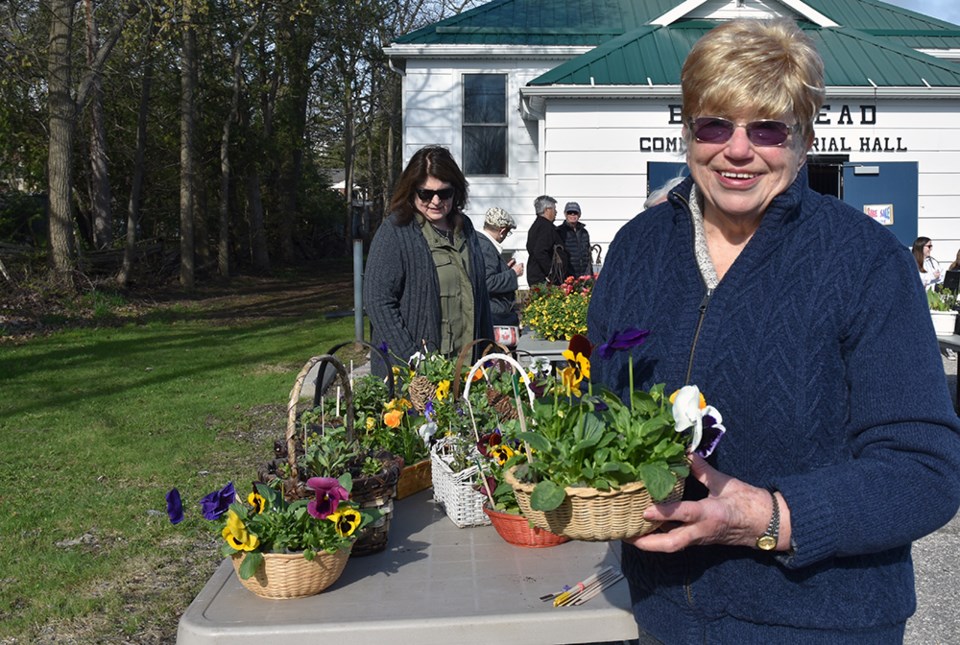“You don’t lose what you were taught as a kid.”
Giselle Gutsche is talking about her motivation for volunteering her time, since her retirement – helping out at the food bank, the Bond Head Women’s Institute, Danube Seniors Leisure Centre, and the Bond Head-Bradford Garden Club, over the years.
It was the example set by her grandmother that inspired a lifetime of helping others.
Gutsche was originally born to a life of privilege. The family lost their estate during World War I, but they had relocated to an island in the Baltic Sea, off the coast of Germany, where the Oder River enters the sea.
She grew up watching as her grandmother worked in the garden, and provided assistance to anyone in the nearby village, when they fell ill – delivering home-made chicken soup and tea. Gutsche, as a child, was invited to tag along, and pick bouquets of wildflowers to cheer those who were ailing.
Her grandmother had learned about flowers from her own father, an Apothecary, and carried on the tradition of caring.
“She was looking after the whole village,” Gutsche said. “My grandma taught me all the Latin names and all the German names (of the flowers). She learned all this stuff from her father, and she taught me.”
Growing up on the island, the house was always filled with relatives. With 13 rooms, it was normal to take in anyone who came - a kind of “B & B for relatives,” she remembered. “We always had 20 people around the dining table in summer.”
That all came to an end when she was eight-years-old. In February of 1945, toward the tail end of the Second World War, the German army took over their home, and they suddenly found themselves homeless refugees.
As they left, Gutsche was told to “wave the house goodbye,” because they would never see it again.
The house was gone within three days, demolished by artillery fire – and the family was left “as poor as church mice.”
She had a special birthday that year. “The war was over on my ninth birthday,” Gutsche says. “That was the biggest birthday present!”
And her grandmother told her, “Every day there is one thing positive that you will find. You have to look.”
On her birthday, her grandmother pointed to the ground: “There it is – your special thing for the day.” It was two violets, in bloom.
Ever since then, violets have held special meaning for Gutsche and, she said, “I’m still looking every day for my positive sign.”
Health issues and weeks in hospital with pneumonia have curbed her volunteer efforts. Before her illness, she was a kitchen volunteer at the Danube Centre, helping to prepare the lunches for Seniors, and a volunteer at the Helping Hand Food Bank.
Now, of course, the COVID-19 pandemic has shut down all organized activities, but Gutsche continues to think of ways to help.
As she listens to music (“I don’t watch much television!”), she knits scarves and toques for residents of The LOFT’s Bradford House, a residence for seniors at risk of homelessness.
“Knitting is really relaxing. Your mind is active, because you’re creating something,” she said. “I’ll have 20 items by Christmas.”
She also writes, and has been working on a book that she hopes to have out on her birthday, May 8. Next to the end of World War II, she said, “that would be the second biggest present.”
It’s not only the foundation of caring for others that she learned as a child, or the grounding in horticulture.
Gutsche sums up her inspiration: “You have to have a purpose.”
